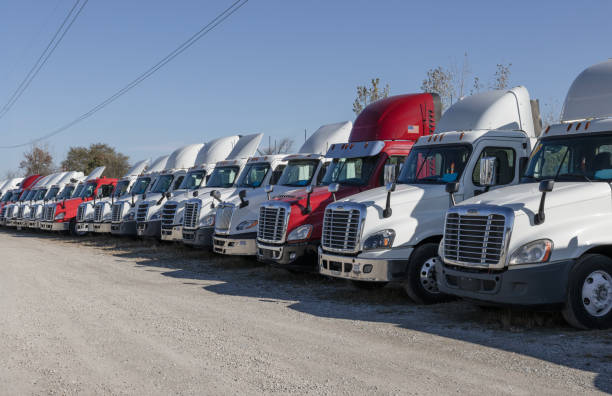An Imperative in Propane Distribution

In the world of propane distribution, the sight of idle trucks in the yard is a familiar scene. Amidst the daily operations, the question of optimizing fleet utilization often remains unaddressed. However, the dynamics of supply, operational challenges, and competitive pressures call for a closer look at fleet efficiency for sustained success in the propane industry.
Consider the varying usage patterns of trucks: while some newer vehicles are constantly on the move, older ones often spend extended periods of time sitting idle. On average, propane delivery trucks are on the road for approximately 115 days a year, significantly influencing yard occupancy levels.
Examining operational metrics reveals the profound impact of optimized fleet utilization on performance. A typical propane delivery truck operates for 8 to 9 hours per day, delivering around 4,000 gallons of propane daily. This equates to an annual delivery potential of up to 460,000 gallons per truck, emphasizing the importance of efficient fleet management in maximizing delivery capacity.
Imagine implementing incremental improvements in operational efficiency. By increasing hourly deliveries by 10% and extending the active period by just 10 days annually, propane distributors can significantly enhance delivery capabilities. This strategic enhancement, achievable through systematic planning, could elevate annual delivery volumes to nearly 506,000 gallons per truck.
However, the need for change often arises from challenges rather than proactive planning. Factors such as evolving customer needs, workforce dynamics, and market competition all serve to exert pressure on operational margins. The gradual erosion of operational efficiency highlights the necessity of calibration of fleet strategies to enhance profitability and mitigate revenue loss.
Consider the implications for a propane distribution company serving automatic delivery customers, where inefficiencies in fleet utilization result in missed opportunities. Embracing a proactive approach to optimizing fleet efficiency is not just strategic but essential for sustaining growth and resilience in a dynamic market environment.
Achieving operational excellence in propane distribution requires maximizing fleet efficiency. Through data-driven insights, technological advancements, and a commitment to continuous improvement, propane distributors can unlock value and position themselves for increased growth. The era of idle trucks may soon give way to a future where every vehicle embodies efficiency and productivity, thereby driving greater success in propane distribution.
















